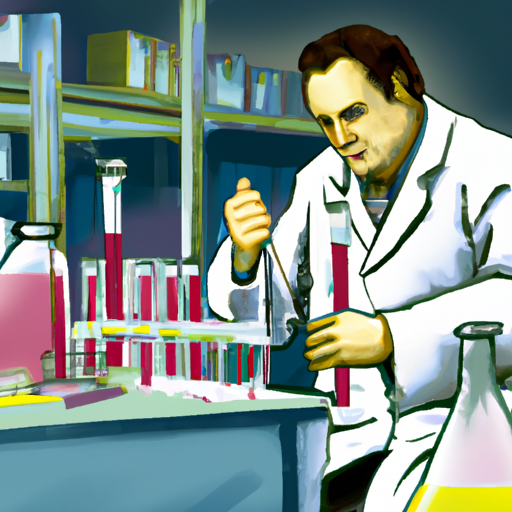From Diagnosis to Treatment: Unveiling the Journey of Developing New Drugs for Improved Healthcare

In today’s world, the field of medicine is constantly evolving, with researchers and scientists tirelessly working towards the development of new drugs. These drugs play a crucial role in diagnosing, treating, and managing various diseases. From understanding the symptoms and causes of diseases to revolutionizing treatment methods, the development of new drugs has the potential to transform healthcare as we know it. However, the journey of drug development is not without its challenges. In this article, we will delve into the intricacies of this process, exploring the need for new drugs, the advancements made in their development, and the barriers that must be overcome to bring these life-saving treatments to patients in need.
1. "Understanding the Need: Exploring the Symptoms, Causes, and Diagnosis of Diseases"
Understanding the Need: Exploring the Symptoms, Causes, and Diagnosis of Diseases
In today’s fast-paced world, the development of new drugs plays a crucial role in improving healthcare outcomes. To effectively develop new drugs, it is essential to have a deep understanding of the symptoms, causes, and diagnosis of diseases. This knowledge serves as the foundation for identifying the gaps in current treatment options and discovering potential targets for drug development.
Symptoms are the manifestations of a disease that patients experience. They can vary widely depending on the type of illness and its severity. By closely examining the symptoms, researchers can gain valuable insights into the underlying mechanisms of a disease. This understanding is vital in developing new drugs that can directly address these symptoms and provide relief to patients.
Causes of diseases can be multifactorial, ranging from genetic predispositions to environmental factors or a combination of both. Investigating the causes of a disease is a crucial step in drug development. It allows researchers to identify specific molecular targets or pathways responsible for the development or progression of a disease. By targeting these causes, new drugs can be designed to address the root of the problem rather than merely alleviating the symptoms.
Accurate and timely diagnosis is the cornerstone of effective disease management. With advancements in medical technology, diagnostic tools and techniques have become increasingly sophisticated. Early detection of diseases not only improves patient outcomes but also provides a window of opportunity for the development of targeted therapies. Through diagnostic tests, healthcare professionals can identify specific biomarkers or markers of disease progression, aiding in the development of personalized treatment approaches.
Moreover, understanding the symptoms, causes, and diagnosis of diseases is vital in identifying unmet medical needs. By recognizing the limitations of current treatment options, researchers can focus their efforts on developing drugs that address these gaps. For example, if a disease lacks effective treatments that target a specific symptom or cause, new drug development can be directed towards filling this gap.
In conclusion, the development of new drugs is intricately linked to understanding the symptoms, causes, and diagnosis of diseases. By closely examining the symptoms, researchers
2. "Revolutionizing Treatment: The Development and Advancements of New Drugs"
In recent years, the field of medicine has witnessed remarkable advancements in the development of new drugs. This progress has revolutionized the way we diagnose and treat various diseases and conditions. With the constant evolution of technology and scientific knowledge, researchers have been able to uncover new insights into the causes and symptoms of diseases, leading to the development of innovative treatments that were once unimaginable.
One of the key factors contributing to the development of new drugs is the improved understanding of diseases and their underlying mechanisms. Scientists have made significant strides in identifying the molecular and genetic factors that contribute to the development and progression of diseases. This knowledge has allowed them to design targeted therapies that specifically address these disease-causing factors.
Another significant advancement in the development of new drugs is the use of high-throughput screening techniques. These techniques enable researchers to rapidly test thousands of chemical compounds against specific disease targets. Through this process, they can identify potential drug candidates more efficiently. This approach has significantly accelerated the drug discovery process, allowing for faster translation of scientific discoveries into effective treatments.
Furthermore, the emergence of personalized medicine has greatly influenced the development of new drugs. In the past, treatments were often generalized, with patients receiving the same medication regardless of their specific genetic makeup or disease characteristics. However, advancements in genomics and molecular diagnostics now enable healthcare professionals to tailor treatments to individual patients. By analyzing a patient’s genetic information, doctors can identify specific biomarkers that indicate the likelihood of response to certain drugs. This personalized approach ensures that patients receive the most effective treatment for their specific condition, leading to improved outcomes and reduced side effects.
Moreover, the development of new drugs has been greatly facilitated by collaborations between academia, pharmaceutical companies, and regulatory bodies. These partnerships allow for the exchange of knowledge, resources, and expertise, ultimately expediting the drug development process. Additionally, regulatory agencies play a crucial role in ensuring the safety and efficacy of new drugs before they are made available to the public. Through their rigorous evaluation processes, these agencies guarantee that only drugs with proven benefits and acceptable risk profiles reach the market.
Overall
3. "Breaking Barriers: Overcoming Challenges in the Journey of Drug Development"
Developing new drugs is a complex and challenging process that requires significant time, resources, and expertise. Throughout the journey of drug development, researchers and scientists encounter numerous barriers that must be overcome in order to bring safe and effective treatments to patients. These challenges can arise at various stages of the development process and can impact the speed, cost, and success of drug development endeavors.
One of the primary challenges in drug development lies in the initial stages of discovery and identification of potential drug candidates. Researchers must thoroughly understand the underlying mechanisms and pathways of diseases in order to identify suitable targets for drug intervention. This requires extensive knowledge of the disease biology and a deep understanding of the complexity of human physiology. Additionally, the identification of safe and effective compounds that can modulate these targets can be a daunting task, as it requires a meticulous screening and testing process to ensure efficacy and minimal side effects.
Once potential drug candidates are identified, the journey of drug development faces another hurdle – preclinical testing. This stage involves rigorous testing in laboratory settings and animal models to evaluate safety, efficacy, and pharmacokinetics of the drug. It is crucial to establish the drug’s therapeutic window and evaluate potential toxicities and adverse effects before proceeding to clinical trials. However, preclinical testing can be a time-consuming and resource-intensive process, often taking several years before a drug candidate can advance to human trials.
Moving on to clinical trials, drug developers face additional challenges. Conducting clinical trials involves recruiting and retaining a sufficient number of eligible patients, ensuring compliance with strict ethical guidelines, and collecting robust and reliable data. Clinical trials also require significant financial investment, as the costs associated with conducting large-scale trials can be substantial. Moreover, the likelihood of success in clinical trials is often low, as many drug candidates fail to demonstrate the desired efficacy or safety profile.
Regulatory approval is yet another critical aspect of drug development that presents challenges. Regulatory bodies, such as the Food and Drug Administration (FDA) in the United States, have stringent guidelines and requirements to ensure the safety and efficacy of new drugs before they are approved



